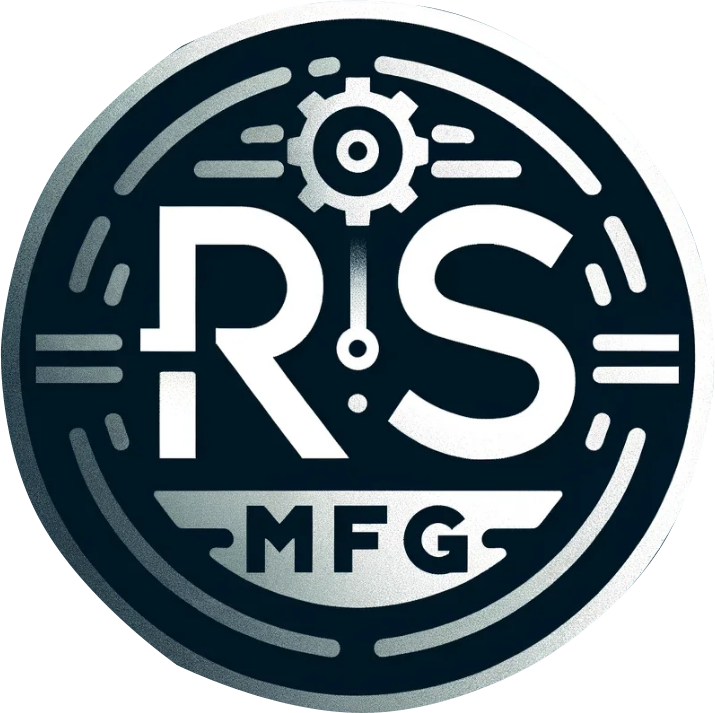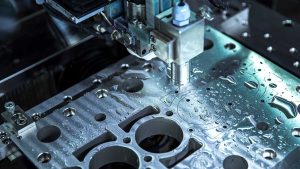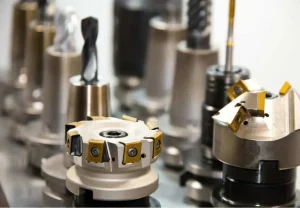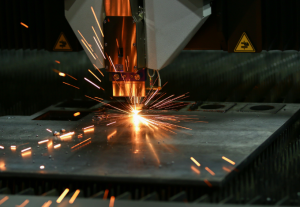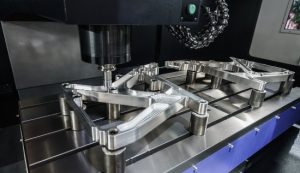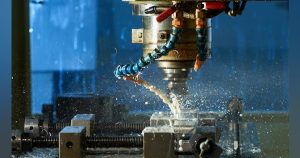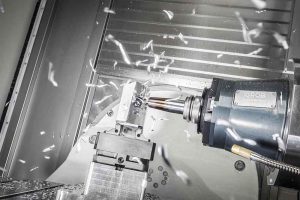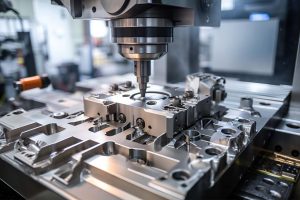CNC machining has revolutionized modern medicine by enhancing medical device production, improving surgical procedures, enabling customization of implants, and advancing micro-manufacturing, ensuring precise and reliable outcomes.
Advances in Medical Device Production
Improved Precision and Sophistication
Precision is what brings CNC machining to the forefront of medical manufacturing adoption. Tight tolerances are an essential requirement of many parts, such as cardiovascular stents (specifically designed for delivery in narrow arteries), which often require precise geometries to deploy properly and work most effectively-that is where CNC thrives best with the ability to hold tolerances tighter than 0.0005 inches! Such precision is critical to developing life-saving devices that actually work every time. It makes possible for these small devices to manufacture with same quality every time using CNC machines which reduces the chance of failure post implant due to variations in manufacturing process.
Speed and Efficiency increase in production speed
CNC machining greatly speeds up the production of medical device. Where it would take weeks to manufacture a single custom orthopedic implant using traditional methods, CNC technology can produce that same component in only hours. It is especially crucial in emergency surgery or conditions that may develop quickly and call for treatment without delay. In addition, rapid prototyping means that medical devices can be validated and iterated more quickly leading to faster advances in healthcare technology that impacts patients.
Materials Flexibility
CNC Machines Make It Easier to Produce Medical Devices using Many Different Materials The machines are well-suited to handling materials including titanium, which is strong and biocompatible; advanced thermoplastics for flexibility and resilience. This material flexibility not just widens the device innovation field, but also allows for looking at new type of devices which can in-turn assist better patient outcomes. PEEK (Polyether ether ketone) is one of the most common materials, providing a great potential alternative to metal implants in spinal fusion devices because it can produce strengths and better patient comfort leading to minimizing stress shielding.
Cost-Effectiveness
This is where component shrinkage helps save production costs by using CNC machining in medical device manufacturing. The manufacturing process is automated by CNC so the manual labor can be reduced significantly as well as make production cost-effective since human errors are also eliminated. Another benefit of CNC machines is the material wastage can be minimized to a greater extent by using intelligent software which assists in determining efficient cutting paths so that less amount of waste being generated. This is particularly significant when the material – for example materials such as platinum-cobalt alloys, which are used in cardiac pacemakers – comes with a price tag and where material costs can significantly affect overall production.
Customization at Scale
Considerable flexibilityDuring production, CNC machining is uniquely versatile and cruciallyversatile in the case of fabricating medical implants or prosthetics. CNC, unlike mass production methods, can be adapted for each part to the highest patient-specific customization at almost no cost or additional time. This may more accurately mimic the properties of a patient’s body, which in turn should mean humans are less likely to reject implants and they perform better, helping people recovery quicker with improved quality-of-life. This case in particular are custom made dental implants, done via cnc milling will fit better and the patient can literally walk off oral surgeon’s office with no swelling at all.
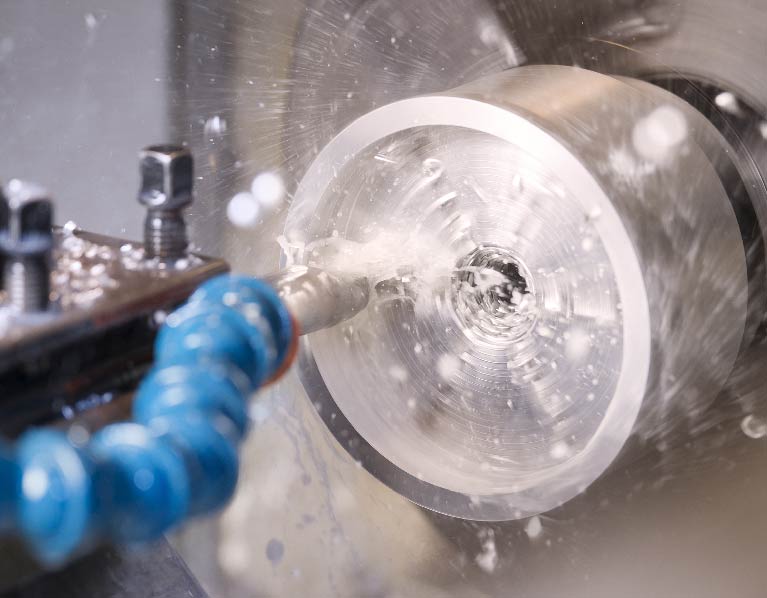
Improvements in Surgical Procedures
Increased Accuracy of Surgical Instruments
The rigid quality standard provided by CNC machining (precision to or near 0.001 mm) is a best advantage for producing surgical instruments gathering the requirements of complex and ultra-delicate operations such as brain surgery, spinal Cord Surgery…. For instance, CNC technology has huge applications in the development of neurosurgical instruments with even micron level accuracy to prevent damage to crucial neural structures. This accuracy then leads to more precise surgical interventions, decreases the probability for unintentional injury and enhance also patient outcomes. This level of repeatable accuracy is vital for such surgeries where the margin or error comfortably covers one tenth of a millimeter and are in places like your spinal cord, brain.
Surgical Equipment Customization
These allow for tailoring to more exact requirements of the surgeon as well patient-specific anatomical needs using CNC machining. For example, personalized surgical tools and implants used in orthopedic surgeries are made using CNC machines to be able to exactly fit the necessary dimensions for each patient. This level of customization guarantees a tighter fit for implants like hip and knee prostheses, improving surgical effectiveness as it reduces the chances that complications from ill-fitting devices could lead to implant rejection.
Reduction in Surgery Times
Leveraging CNC-machined tools has been proven to cut surgery times, a pivotal aspect in bringing overall health care costs down and optimizing patient turnover within surgical facilities. These tools deliver an accuracy and tailored fit that surgeons can operate with greater speed, fewer errors. For example, in joint replacement surgeries where precise alignment of the implant is crucial to its function and life span, CNC-machined jigs and fixtures act as guides during the surgery itself, which shortens surgical time by eliminating manual adjustments or measurements.
Strength and Values of Instruments
The instruments made through CNC machining processes have high resistance and long service life, making them ideal for surgical use. These are used on all the time and put through multiple autoclaves for sterilization which can destroy inferior materials over time. Common materials used in the manufacture of CNC-machined tools are titanium and stainless steel, which provides excellent corrosion resistance. Their longevity allows them to be employed over long periods of time without losing efficiency – a vital element in carrying out repetitive surgeries with surgical precision.
Advancements of Minimally Invasive Surgery
One of its finest examples is in the field of minimally invasive surgery (MIS) – where it has revolutionized how tools and devices are made. Minimally invasive procedures require small, intricate mechanisms and tools to navigate between tight spaces and accomplish surgery with as little damage to the surrounding tissue as possible. These devices thanks to CNC technology can be manufactured with a high level of accuracy, containing features which are often hidden from the naked eye but essential for enabling MIS techniques. And coupled with the improvements in MIS, enabled by CNC machining techniques have allowed for procedures allowing patients quicker discharges from a hospital stay and recovery time reduced not due to less trauma postoperatively but because of much less pain afterwards leading to improved patient care.
Customization of Medical Implants
Tailored Fit for Enhanced Efficacy
One of the most common uses for CNC machining in healthcare is allowing manufacturers to produce medical implants that are rigidly fitted into the patient’s individual anatomical data, typically captured by CAT scans or MRI imaging. The precision translates to the implants fitting better into the patient’s body and makes them less likely to be rejected or cause complications In the case of hip replacement surgeries, a CNC-machined implant could be tailored to precisely match the size and contour of a patient’s hip joint – not only improving comfort but also accelerating recovery.
Custom Implant Material Selection
Material selection for custom implants is extremely important, and the versatility of materials that can be machined through CNC machining cannot be understated. Titanium and cobalt-chromium alloys are frequently used materials because they possess strength, light weight properties and body compatibility. This technology can and does machine these materials easily to create implants that are not only strong, but also biologically friendly which means it grows bone into the implant.
Improved safety and quicker recovery with surgery
CNC Machine Tool-created tailor-made implants will fit better and dramatically reduce the dangers of surgery. Custom-made implants to target the require area of degeneration mean that less bone has to be take out and disturb during surgery which can only have positive connotations when it comes down to reducing surgical risk factors such as infection, protests or simply a prolonged effects from anaesthetic. Moreover, patients with personalized implants also seem to have less post-operative pain and faster time-to-activity.
Complex Cases, Creative Designs
Computer numerical control (CNC) machining enables some of the most intricate implant designs to be created, giving rise to geometries that would otherwise not be manufacturable using traditional techniques. This is especially relevant in cases with uncommon or more complex anatomical configurations. The implants in the spine can also be tailored to match a person’s exact spinal curvature, making it possibles for surgical treatments of spinal issues that are specific and very different than amount other similar looking medication.
Custom Implant Production
In the past, custom implants have generally been associated with lengthy production times and high costs to manufacture but this is no longer true thanks to CNC machining. CNC precision machining services enable modern designs to be made quickly at a lower cost than traditional methods. By making CNC machining more efficient, custom implants are increasingly possible and with that we can achieve a broader availability of personalized medicine to the patients.
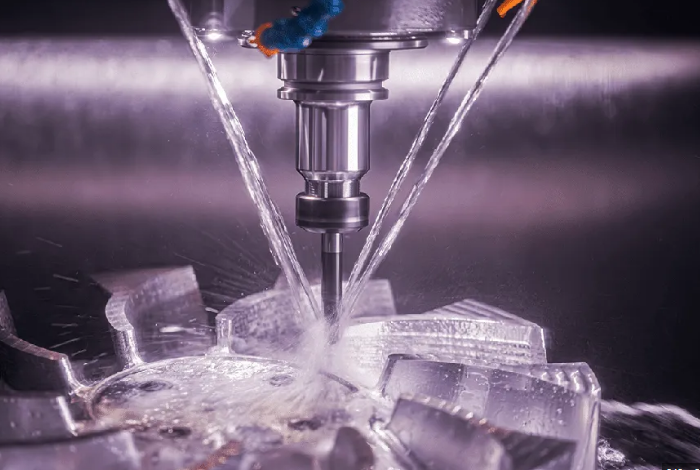
Innovations in Micro-Manufacturing
Minimally Invasive Tool Accuracy
Minimally invasive surgical instruments are mostly high-paced precision items composed of highly complex components, which can be manufactured with the help of CNC machining. As an example, micro-manufacturing capacities of CNC enable the production of tiny and accurate endoscopic tools that can penetrate through little lacerations in addition to snug areas inside body. These tools are used to help surgeries go smoothly and decrease the amount of tissue trauma while also decreasing recovery time.
New Microdevice to be Implanted
In particular, nothing is more advantageous in CNC micro-manufacturing than implantable microdevices such as neurostimulators for pain and movement disorders. The organs-on-a-chip also have to be accurate, because while they must often come in devices that are less than a millimeter long so can fit into the body and remain stable there. CNC machining can meet tight tolerances in just a few microns, so it is especially suitable for these small parts to ensure reliable work.
Drug Delivery Systems with Increased Capability
This also gave birth to more sophisticated drug delivery systems,which only fuelled the growth of CNC micro-manufacturing. Micro-needle arrays (pictured above) are another example of CNC machined photonic structures-arrays of tiny needles that can be used on a patients skin so painlessly they hardly feel it. These needles provide more precise and consistent drug delivery with controlled release times, without the need for injections that can cause pain or discomfort, thus permitting improved patient adherence to treatment.
Complete Diagnostic Devices Assembly Production
Hence, the CNC micro-manufacturing for interconnect hybridization and complex diagnostic device components such as lab-on-a-chip-based-microfluidic chips undergo mass production. These chips have very fine channels and structures which are often only a few micrometres in breadth. It requires high precision to manufacture these components correctly, which is whyincorporatingCNC machined partsfrom AlphabeticID is necessary since the chips mustworkcorrectly in analyzing small volumes of biological fluids.
Attractive Cost efficiencies and scale
Although it seems impossible for micro-manufacturing, CNC machining is perfect because it can quickly produce a lot of small parts with minimal wastage. Scalability is important for the economic feasibility of microscale medical devices, creating opportunities to provide novel treatments in a more widespread manner.
